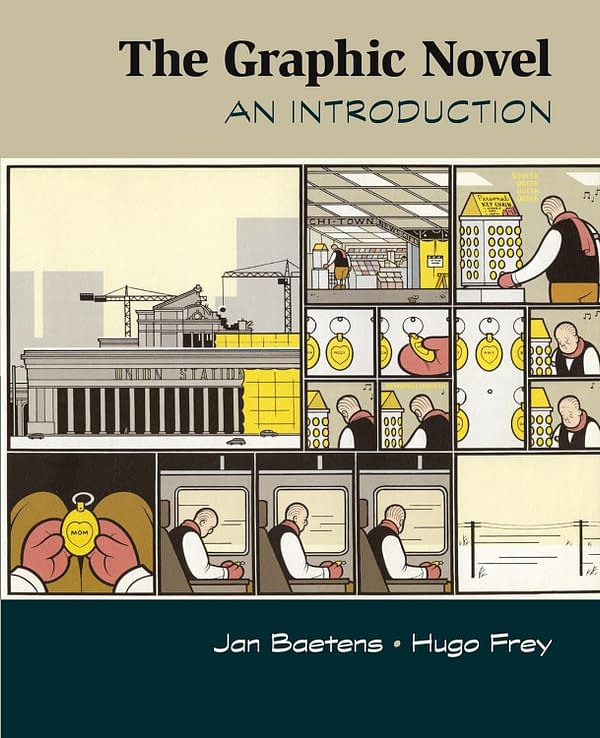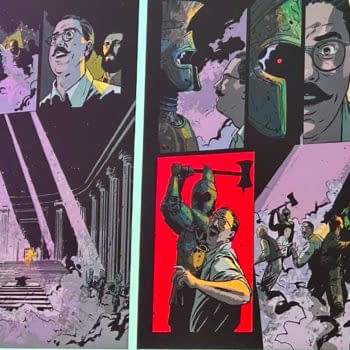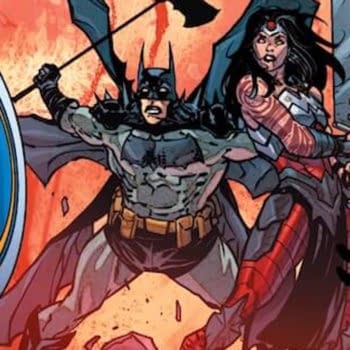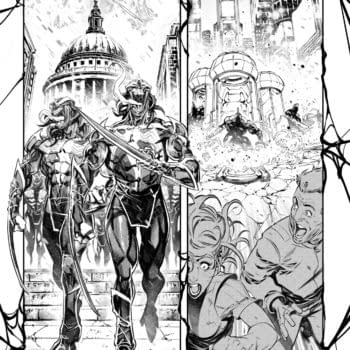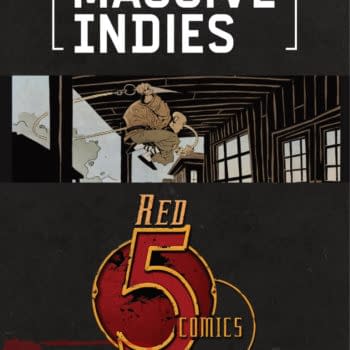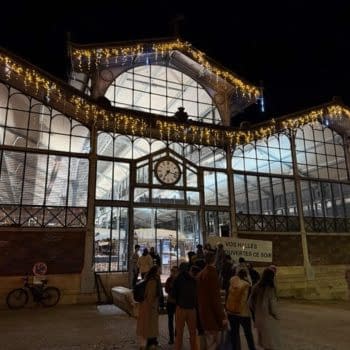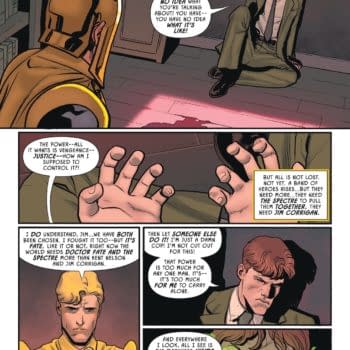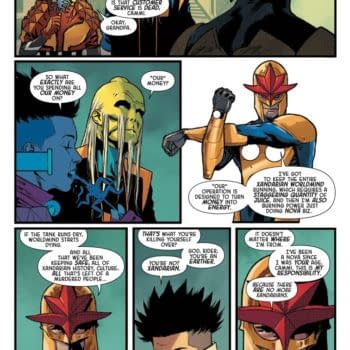Posted in: Comics, Current News | Tagged: ai, British Academy
The British Academy Showcase An Anti-AI Comics Workshop This Summer
The British Academy showcases an anti-AI comics workshop this summer with Professor Hugo Frey and Professor Simon Grennan
Article Summary
- Join Professors Frey and Grennan for a counter-AI comics workshop at the British Academy Summer Showcase 2025.
- Create four-panel comic stories using Victorian and modern magazines to counter AI-generated narratives.
- Explore text-image communication and inspire further study with hands-on comic strip creation and analysis.
- Discover alternative energy ideas through comics and reshape energy infrastructure narratives with experts.
Professor Hugo Frey is a cultural and political historian and director of the Institute of Arts and Humanities at the University of Chichester. His research focuses on twentieth-century France and Francophone Europe, with special emphasis on the politics of visual culture. He has published over 40 books in this field, including The Graphic Novel: An Introduction from Cambridge University Press in 2015.
And at the British Academy Summer Showcase 2025 this year, he will guide school leavers in creating counter-AI comic book strips. The workshop Make the Past and Present Your Comic Story, will see students create a four-panel comic story using Victorian-era and present-day magazines.
Professor Frey, says "We will be cutting up bundles of Victorian magazines as well as modern publications, using scissors and glue to get really hands-on. Then we will become counter-AI, generating narratives using these pictures to inspire the human imagination in a way that artificial intelligence can't. We might end up with a traditional closed story or something very unusual and open-ended."
Professor Frey is presenting the workshop in partnership with Professor Simon Grennan from the University of Chester as part of this year's British Academy Summer Showcase 2025 and it will also will also explore subjects such as sequence, juxtaposition, and text-image communication. And aims to help school leavers understand the world of research and inspire them to pursue further university study. Last year they headed up The Commercial Business of Comics: Transforming Authorship, Distribution, Technology, Story and Aesthetics in the Global North and South.
Professor Frey added: "It is an honour to be invited to take part in the British Academy Summer Showcase and I am especially pleased that the Universities of Chichester and Chester are represented at such a prestigious event where students will be the focus. It is a privilege to have been accepted and I am really looking forward to an exciting day."
It will also be accompanied by "Power Grids: Reimagining Energy Infrastructure In Comics. Via the medium of comics, learn about community energy alternatives to costly – and environmentally damaging – fossil-fuel infrastructures. Explore the wider social benefits of community energy and discover how you can have a more active role in making and using green infrastructure. Share your own story and experience of thriving or failing infrastructure by creating your own short comic and contribute brand new speculative green energy ideas. Dominic Davies, Kremena Dimitrova and Reed Puc – British Academy / Leverhulme Small Research Grant"
This new work with the British Academy follows Professor Frey's successful award with Simon of a British Academy Research Conference Grant. It also precedes the major international exhibition he is co-curating at the Brussels Comics Museum on 'Visionary Comics' from September to December 2025.
The Graphic Novel: An Introduction (Cambridge Introductions to Literature)
by Jan Baetens, Hugo Frey
This book provides both students and scholars with a critical and historical introduction to the graphic novel. Jan Baetens and Hugo Frey explore this exciting form of visual and literary communication, showing readers how to situate and analyze graphic novels since their rise to prominence half a century ago. Several key questions are addressed: What is the graphic novel? How do we read graphic novels as narrative forms? Why is page design and publishing format so significant? What theories are developing to explain the genre? How is this form blurring the categories of high and popular literature? Why are graphic novelists nostalgic for the old comics? The authors address these and many other questions raised by the genre. Through their analysis of the works of many well-known graphic novelists – including Bechdel, Clowes, Spiegelman and Ware – Baetens and Frey offer significant insights for future teaching and research on the graphic novel.


